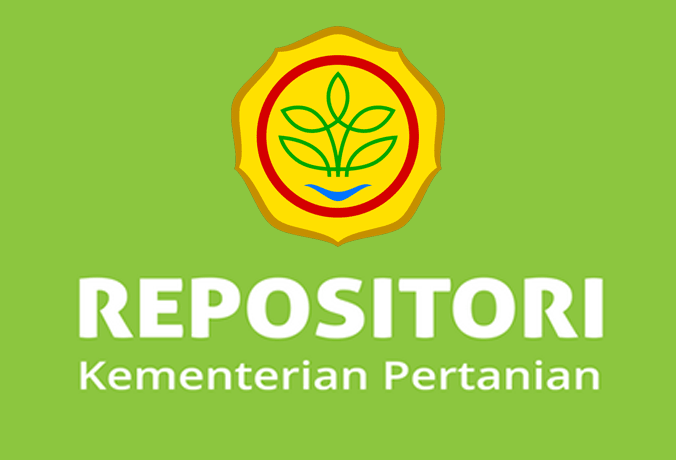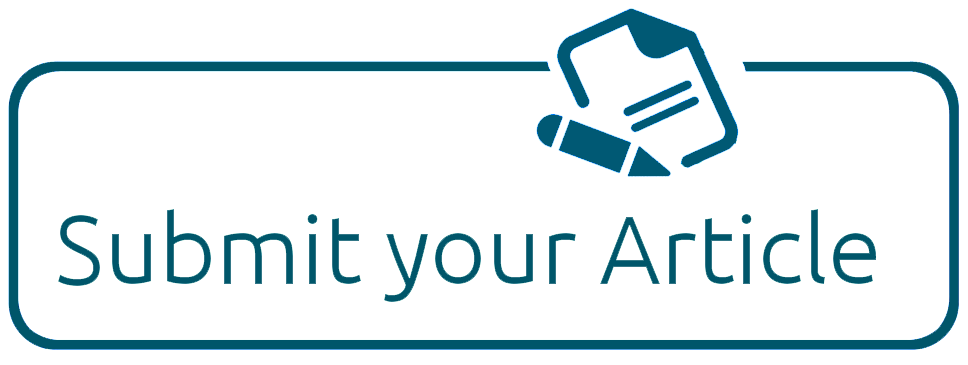About the Journal
Focus and Scope
Ruang lingkup dari Jurnal Agro Ekonomi adalah sosial ekonomi pertanian yang mencakup aspek:
- Tanaman pangan
- Hortikultura
- Perkebunan
- Peternakan
- Makroekonomi
- Agribisnis
- Ketenagakerjaan
- Kelembagaan, pembiayaan dan asuransi pertanian
- Gender dan petani milenial
Section Policies
Articles
| ☑ Open Submissions | ☑ Indexed | ☑ Peer Reviewed |
Peer Review Process
Setelah naskah masuk, pada tahap awal naskah akan diseleksi apakah substansi naskah sesuai dengan ruang lingkup dari jurnal serta orisinalitas dari naskah. Jika memenuhi, maka naskah akan melalui proses review internal dan mitra bestari. Keputusan evaluasi awal naskah maksimal empat minggu setelah naskah diterima Redaksi
Publication Frequency
JAE terbit setiap bulan Mei dan Oktober.
Open Access Policy
JAE memberikan akses terbuka terhadap seluruh artikel yang tersedia dengan berpegang pada prinsip untuk membuat hasil-hasil penelitian tersedia bagi umum dalam mendukung pertukaran pengetahuan secara global.

This work is licensed under a Creative Commons Attribution-NonCommercial-ShareAlike 4.0 International License.
Archiving
This journal utilizes the LOCKSS system to create a distributed archiving system among participating libraries and permits those libraries to create permanent archives of the journal for purposes of preservation and restoration. More...
Plagiarism Check
pengecekan plagiarisme akan dilakukan oleh dewan redaksi dan atau redaksi pelaksana yang ditunjuk oleh ketua dewan redaksi dengan menggunakan aplikasi plagiarism checker sesuai dengan kebutuhan dewan redaksi dalam melakukan pengecekan plagiarisme.
Publication Ethics
JAE is a journal aims to be a leading peer-reviewed platform and an authoritative source of information. We publish original research papers, review articles and case studies focused on socio economic agriculture as well as related topics that has neither been published elsewhere in any language, nor is it under review for publication anywhere. This following statement clarifies ethical behavior of all parties involved in the act of publishing an article in this journal, including the author, the editor, the reviewer, and the publisher (Pusat Sosial Ekonomi dan Kebijakan Pertanian). This statement is based on COPE’s Best Practice Guidelines for Journal Editors.
Duties of Authors
- Reporting Standards: Authors should present an accurate account of the original research performed as well as an objective discussion of its significance. Researchers should present their results honestly and without fabrication, falsification or inappropriate data manipulation. A manuscript should contain sufficient detail and references to permit others to replicate the work. Fraudulent or knowingly inaccurate statements constitute unethical behavior and are unacceptable. Manuscripts should follow the submission guidelines of the journal.
- Originality and Plagiarism: Authors must ensure that they have written entirely original work. The manuscript should not be submitted concurrently to more than one publication unless the editors have agreed to co-publication. Relevant previous work and publications, both by other researchers and the authors’ own, should be properly acknowledged and referenced. The primary literature should be cited where possible. Original wording taken directly from publications by other researchers should appear in quotation marks with the appropriate citations.
- Multiple, Redundant, or Concurrent Publications: Author should not in general submit the same manuscript to more than one journal concurrently. It is also expected that the author will not publish redundant manuscripts or manuscripts describing same research in more than one journal. Submitting the same manuscript to more than one journal concurrently constitutes unethical publishing behavior and is unacceptable. Multiple publications arising from a single research project should be clearly identified as such and the primary publication should be referenced
- Acknowledgement of Sources: Authors should acknowledge all sources of data used in the research and cite publications that have been influential in determining the nature of the reported work. Proper acknowledgment of the work of others must always be given.
- Authorship of the Paper: The authorship of research publications should accurately reflect individuals’ contributions to the work and its reporting. Authorship should be limited to those who have made a significant contribution to conception, design, execution or interpretation of the reported study. Others who have made significant contribution must be listed as co-authors. In cases where major contributors are listed as authors while those who made less substantial, or purely technical, contributions to the research or to the publication are listed in an acknowledgement section. Authors also ensure that all the authors have seen and agreed to the submitted version of the manuscript and their inclusion of names as co-authors.
- Disclosure and Conflicts of Interest: All authors should clearly disclose in their manuscript any financial or other substantive conflict of interest that might be construed to influence the results or interpretation of their manuscript. All sources of financial support for the project should be disclosed.
- Fundamental Errors in Published Works: If the author discovers a significant error or inaccuracy in the submitted manuscript, then the author should promptly notify the journal editor or publisher and cooperate with the editor to retract or correct the paper.
- Hazards and Human or Animal Subjects: The author should clearly identify in the manuscript if the work involves chemicals, procedures or equipment that have any unusual hazards inherent in their use.
Duties of Editor
- Publication Decisions: Based on the review report of the editorial board, the editor can accept, reject, or request modifications to the manuscript. The validation of the work in question and its importance to researchers and readers must always drive such decisions. The editors may be guided by the policies of the journal's editorial board and constrained by such legal requirements as shall then be in force regarding libel, copyright infringement and plagiarism. The editors may confer with other editors or reviewers in making this decision. Editors have to take responsibility for everything they publish and should have procedures and policies in place to ensure the quality of the material they publish and maintain the integrity of the published record.
- Review of Manuscripts: Editor must ensure that each manuscript is initially evaluated by the editor for originality. The editor should organize and use peer review fairly and wisely. Editors should explain their peer review processes in the information for authors and also indicate which parts of the journal are peer reviewed. Editor should use appropriate peer reviewers for papers that are considered for publication by selecting people with sufficient expertise and avoiding those with conflicts of interest.
- Fair Play: The editor must ensure that each manuscript received by the journal is reviewed for its intellectual content without regard to sex, gender, race, religion, citizenship, etc. of the authors. An important part of the responsibility to make fair and unbiased decisions is the upholding of the principle of editorial independence and integrity. Editors are in a powerful position by making decisions on publications, which makes it very important that this process is as fair and unbiased as possible.
- Confidentiality: The editor must ensure that information regarding manuscripts submitted by the authors is kept confidential. Editors should critically assess any potential breaches of data protection and patient confidentiality. This includes requiring properly informed consent for the actual research presented, consent for publication where applicable.
- Disclosure and Conflicts of Interest: The editor of the Journal will not use unpublished materials disclosed in a submitted manuscript for his own research without written consent of the author. Editors should not be involved in decisions about papers in which they have a conflict of interest
Duties of Reviewers
- Confidentiality: Information regarding manuscripts submitted by authors should be kept confidential and be treated as privileged information. They must not be shown to or discussed with others except as authorized by the editor.
- Acknowledgement of Sources: Reviewers must ensure that authors have acknowledged all sources of data used in the research. Reviewers should identify relevant published work that has not been cited by the authors. Any statement that an observation, derivation, or argument had been previously reported should be accompanied by the relevant citation. The reviewers should notify the journal immediately if they come across any irregularities, have concerns about ethical aspects of the work, are aware of substantial similarity between the manuscript and a concurrent submission to another journal or a published article, or suspect that misconduct may have occurred during either the research or the writing and submission of the manuscript; reviewers should, however, keep their concerns confidential and not personally investigate further unless the journal asks for further information or advice.
- Standards of Objectivity: Review of submitted manuscripts must be done objectively and the reviewers should express their views clearly with supporting arguments. The reviewers should follow journals’ instructions on the specific feedback that is required of them and, unless there are good reasons not to. The reviewers should be constructive in their reviews and provide feedback that will help the authors to improve their manuscript. The reviewer should make clear which suggested additional investigations are essential to support claims made in the manuscript under consideration and which will just strengthen or extend the work
- Disclosure and Conflict of Interest: Privileged information or ideas obtained through peer review must be kept confidential and not used for personal advantage. Reviewers should not consider manuscripts in which they have conflicts of interest resulting from competitive, collaborative, or other relationships or connections with any of the authors, companies, or institutions connected to the papers. In the case of double-blind review, if they suspect the identity of the author(s) notify the journal if this knowledge raises any potential conflict of interest.
- Promptness: The reviewers should respond in a reasonable time-frame. The reviewers only agree to review a manuscript if they are fairly confident they can return a review within the proposed or mutually agreed time-frame, informing the journal promptly if they require an extension. In the event that a reviewer feels it is not possible for him/her to complete review of manuscript within stipulated time then this information must be communicated to the editor, so that the manuscript could be sent to another reviewer.
Every accepted manuscript should be accompanied by "Publication Ethical Clearence" and "Copyright Transfer Agreement" prior to the article publication.
Accreditation Certificate
JAE telah terakreditasi dari tahun 2009, dan telah diperpanjang hingga tahun 2018 sesuai dengan Surat Keputusan LIPI Nomor 645/AU3/P2MI-LIPI/07/2015. Pada tahun 2018 JAE telah melakukan akreditasi ulang dan berhasil meraih sertifikat akreditasi dengan nomor 21/E/KPT/2018 tanggal 9 Juli 2018 berdasarkan keputusan dari Direktur Jenderal Penguatan Riset dan Pengembangan, Kementerian Riset, Teknologi, dan Pendidikan Tinggi Republik Indonesia.
Pada Tahun 2020 JAE mengajukan akreditasi ulang kembali dan mendapatkan peringkat SINTA 2 sesuai dengan surat keputusan Menteri Riset dan Teknologi/Kepala Badan Riset dan Inovasi Nasional nomor 148/M/KPT/2020.
References Management
semua naskah yang masuk diharapkan dapat menggunakan aplikasi referensi manager seperti Mendeley. Gaya sitasi atau penulisan yang digunakan adalah Council of Science Editors (name-year system). Jika menggunakan aplikasi Mendeley, silahkan menggunakan gaya sitasi (citation style) "Taylor & Francis - Council of Science Editors (author-date)".
Author Fees
Every manuscript submitted to JAE will not have any 'submission fees', 'article processing fees', 'publication fees', and 'archiving fees'. All process are free of charges and allows immediate access to the full-text versions of the articles.
Copy Editing & Proofreading
semua naskah yang masuk akan dilakukan pengecekan tata bahasa dan proof reading setelah melalui proses review oleh Mitra Bestari.








